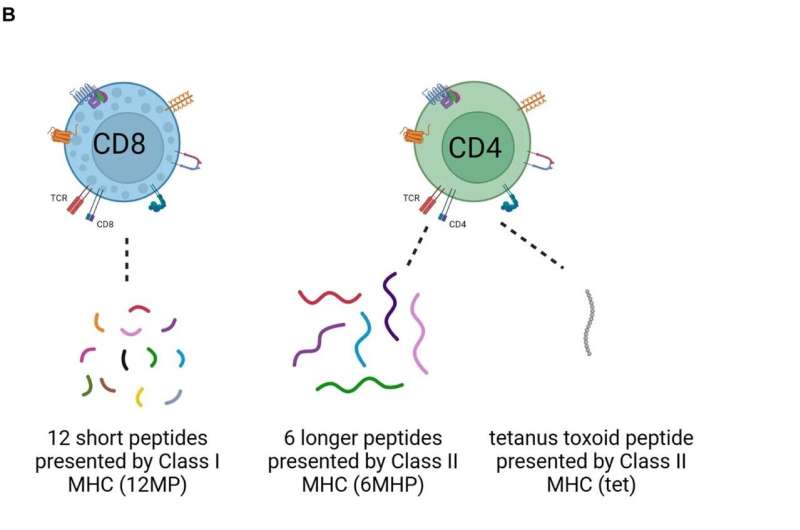This article has been reviewed according to Science X's editorial process and policies. Editors have highlighted the following attributes while ensuring the content's credibility:
fact-checked
peer-reviewed publication
trusted source
proofread
Enhanced melanoma vaccine offers improved survival for men

A second-generation melanoma vaccine being developed at UVA Cancer Center improves long-term survival for melanoma patients compared with the first-generation vaccine, new research shows. Interestingly, the benefit of the second-generation vaccine was greater for male patients than for female patients. That finding could have important implications for other cancer vaccines, the researchers say.
The vaccine developers, led by Craig L. Slingluff Jr., MD, found that they could enhance the effectiveness of their melanoma vaccine by simultaneously stimulating important immune cells known as "helper T cells" to recognize melanoma proteins, in addition to stimulating killer T cells against melanoma. This boosted patient survival and helped prevent reoccurrences of the cancer.
The researchers are not sure why the approach was more effective in men, but biological sex is emerging as an important factor in the outcomes of patients with melanoma, in particular with immune therapies. The findings support the importance of understanding how best to benefit women as well as men with effective immunotherapies.
"These findings support the promise of this second-generation melanoma vaccine for prolonging survival of patients after surgery for high-risk melanoma," said Slingluff, a surgical oncologist and translational immunologist at UVA Health and the University of Virginia School of Medicine. "We hope that we can make this available to patients in addition to other effective immune therapies so that they may have an even greater benefit than either treatment alone."
More effective melanoma vaccine
People commonly think of vaccines as something you take to avoid getting sick from viruses. Most cancers do not have a known viral cause, but melanoma vaccines can induce immune responses against human melanoma cells, and Slingluff and others have been working to make them effective for the treatment of melanoma. (There are cancers that are caused by viruses, and some vaccines against those viruses have been very effective at preventing cancers they cause—for example, there are vaccines against human papillomavirus and hepatitis B).
Slingluff's melanoma vaccine targets a form of skin cancer that kills thousands of Americans every year. In seeking to make the vaccine more effective, he and his team tested two different approaches to stimulating both CD4+ helper T cells and CD8+ killer T cells in patients with high-risk melanoma. More than 160 clinical trial volunteers were given, at random, one of two vaccine preparations of purified peptides to stimulate their helper T cells.
Fifteen years after the last participant was enrolled in the trial, overall survival rates were encouraging with both vaccine approaches, but overall survival was better for those with the second-generation vaccine. Those who benefitted most appeared to be younger men with earlier-stage melanoma. The researchers characterize the benefit as "meaningful and durable" in a new paper outlining their findings.
"We were very excited by these findings and for the promise to improve survival with these vaccines," Slingluff said. "Combination of the second-generation vaccine with other immune therapies may further increase the benefit for patients."
The multicenter trial's findings suggest that both age and sex may play important roles in determining immune therapy outcomes. That is important information for doctors and researchers developing these treatments, Slingluff says.
"The differences in benefit based on age and biological sex highlight the need to understand reasons for those differences so that we can provide the same benefit for all patients," Slingluff said. "We are excited to build on these exciting findings."
The work is published in the journal Nature Communications.
More information: Emily K. Ninmer et al, Multipeptide vaccines for melanoma in the adjuvant setting: long-term survival outcomes and post-hoc analysis of a randomized phase II trial, Nature Communications (2024). DOI: 10.1038/s41467-024-46877-6


















